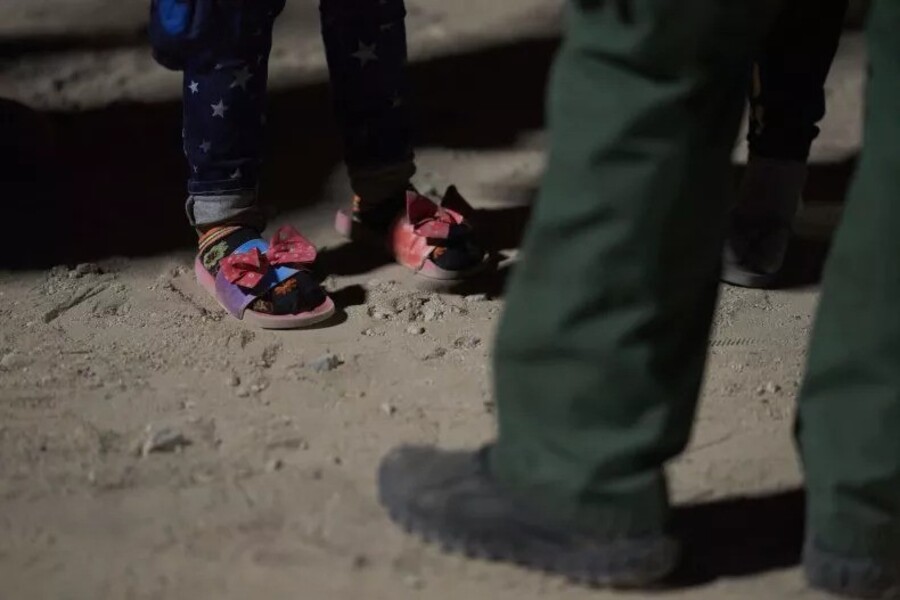Former Trump administration border czar Tom Homan defended the controversial deportation of a two-year-old U.S. citizen to Honduras alongside her mother, asserting that the removal followed due process and legal standards, even as federal judges and advocates express deep concerns about how the situation unfolded.
Appearing on CBS’s Face the Nation on Sunday, Homan strongly rejected accusations that the federal government unlawfully deported a U.S. citizen child. According to Homan, the child’s mother, an undocumented immigrant, underwent full immigration proceedings, and following the court’s final removal order, she exercised her right as a parent to have her young daughter accompany her upon deportation. The two-year-old went with the mom. The mom signed the paper, saying, ‘I want my two-year-old to go with me.’ That’s a parent’s decision, it’s not a government decision,” Homan emphasized.
The controversy erupted after Louisiana Federal District Court Judge Terry Doughty issued an order on Friday suggesting that there was a “strong suspicion that the Government just deported a U.S. citizen with no meaningful process.” Judge Doughty, a Trump appointee, expressed alarm at the circumstances surrounding the deportation and attempted to arrange a phone call with the deported mother to investigate further. However, according to court documents, Department of Justice lawyers informed the court that such a call could not be arranged at that time.
The case is not isolated. According to court filings reviewed by CBS News, three U.S. citizen children were deported along with their mothers to Honduras on the same day. Among them was a four-year-old child reportedly suffering from Stage 4 cancer. Advocates for immigrant rights pointed to the cases as evidence of systemic problems within the administration’s aggressive deportation agenda. Nevertheless, Homan maintained that such outcomes were consistent with established immigration enforcement policy, reiterating that while U.S. citizen children have constitutional rights, parents facing deportation retain the right to choose whether their children accompany them or remain behind in the United States with relatives or legal guardians.
“This is parenting 101,” Homan said. “You can decide to take that child with you, or you can decide to leave a child here with a relative or another spouse.”
The broader policy argument put forward by Homan reflects a long-standing position held by immigration hardliners: the act of giving birth to a child on U.S. soil, thereby conferring citizenship through birthright, should not shield undocumented parents from removal proceedings. “Having a U.S. citizen child after you enter this country illegally is not a get-out-of-jail-free card,” Homan stated. He added that it does not make parents “immune from our laws,” emphasizing the administration’s stance that immigration law must be enforced uniformly, irrespective of familial ties to American citizen minors.
The incident occurs against the backdrop of the Trump administration’s intensifying deportation efforts, particularly under emergency provisions aimed at streamlining the removal process. Among the legal mechanisms cited to justify recent deportations is the Alien Enemies Act of 1798, an antiquated law traditionally invoked during wartime but now being used to facilitate swift removals of individuals deemed a national security risk or otherwise undesirable by the administration.
The use of this historic statute recently came under scrutiny following the mass deportation of over 230 men, most of them Venezuelans, to El Salvador’s newly established Terrorism Confinement Center. In that case, U.S. District Judge James Boasberg had ordered deportation flights to be turned around, but the administration proceeded nonetheless, citing its authority under the Alien Enemies Act. Among those mistakenly deported was Kilmar Abrego Garcia, a Salvadoran national residing in Maryland, highlighting the possibility of errors in such expedited actions.
The Supreme Court initially allowed deportations under the Alien Enemies Act to proceed on the condition that affected individuals received due process. However, recognizing the growing concerns about procedural irregularities and potential violations of rights, the Court temporarily halted any new deportations from a Texas detention center, signaling that the judiciary would continue to play a critical oversight role.
The deportation of the two-year-old U.S. citizen and her mother has now drawn national attention, symbolizing the complex legal and ethical issues surrounding immigration enforcement, citizenship rights, and family integrity. Legal experts and immigrant rights advocates argue that while undocumented parents may face removal orders, the government has a constitutional obligation to ensure that U.S. citizen children are not deprived of their rights without a full and fair legal process. The fact that Judge Doughty was unable to directly communicate with the deported mother underscores concerns about transparency and accountability in the deportation process.
Meanwhile, the two-year-old’s father is seeking legal avenues to have custody temporarily transferred to a U.S. citizen relative, an action that could pave the way for the child’s return to the United States. The outcome of this custody petition could also set a precedent for how courts address future cases involving the deportation of U.S. citizen minors alongside their undocumented parents.
The Justice Department has yet to issue a detailed public explanation addressing the specific circumstances of the deportations involving U.S. citizen children, leaving many questions unanswered about how decisions were made, what options were presented to the parents, and whether all legal safeguards were properly observed.
As court challenges and congressional inquiries loom, the controversy over the deportation of citizen children is likely to fuel a broader debate about the future of immigration policy in the United States, particularly the balance between enforcing immigration laws and safeguarding constitutional rights. It also intensifies the spotlight on how the next presidential administration may seek to navigate the fine line between immigration control and human rights obligations.
For now, advocates continue to monitor the unfolding cases, while the judiciary seems poised to take a more active role in ensuring that the deportation process does not trample on the rights of the nation’s most vulnerable citizens — its children.
